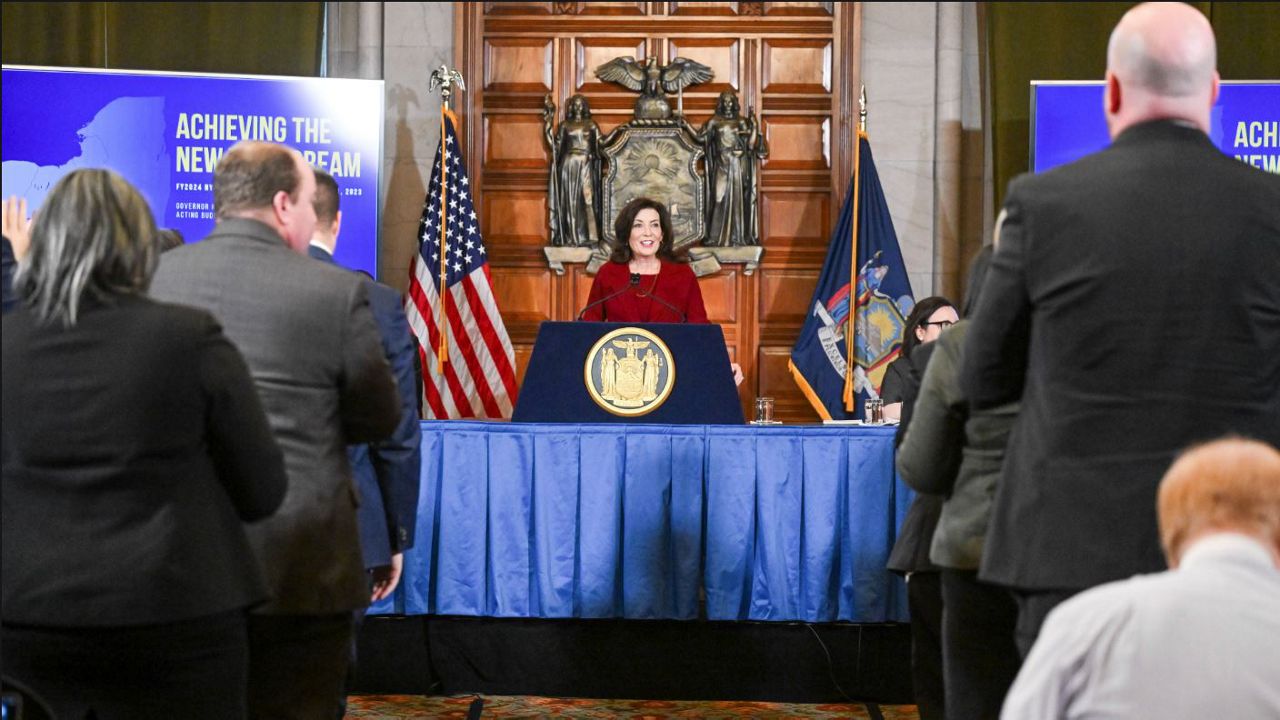These are flush times for New York state with an $8.7 billion surplus expected by the end of March, when the fiscal year starts anew.
It's enabled Gov. Kathy Hochul, now entering her first full term after winning her election last year, to significantly increase education aid, potentially for two years in a row.
For now, she's resisted efforts to increase taxes on the richest New Yorkers through boosting the personal income tax. She wants to increase the Medicaid reimbursement by 5% for hospitals and nursing homes. If adopted as is, her budget would continue to spend heavily on child care and housing programs started a year ago.
In short, it has enabled Hochul to avoid the politically tricky issues that have faced her immediate predecessors. David Paterson, for instance, told lawmakers they had to cut up the credit cards at the onset of the Great Recession. Andrew Cuomo sought to slow the growth of spending in New York and had resisted calls for years to increase taxes on rich people (he ultimately relented).
The budget could prove to have lasting consequences if New York, and the broader economy, sees a downturn.
"The governor’s proposal usually sets the floor in negotiations with the Legislature," said Andrew Rein, the president of the Citizens Budget Commission. "All New York State leaders should focus not just on today, but on protecting generations of New Yorkers from a future downturn and self-made fiscal crises arising from unaffordable spending or counter-productive taxes. With a structural budget gap exceeding $12 billion annually, New York should focus on aligning spending with revenues, and should not create new fiscal cliffs."
Hochul's budget office projects gaps in the coming years, including $5.7 billion next year and $9 billion a year later if spending and revenue keep pace. Hochul is stashing more money into a rainy day fund in order to offset the blow of a potential economic downturn.
"These funds should be used wisely in this shifting economic landscape, and I am pleased the governor has continued her promise to increase rainy day reserves," state Comptroller Tom DiNapoli said. "Robust increases to reserves will better prepare us for future downturns and challenges."
But a flashpoint with Hochul's fellow Democrats may be over tax increases on the wealthiest New Yorkers. Once again, there are calls from progressive lawmakers to increase taxes on the rich to fill the coffers further in New York.
State Assembly Speaker Carl Heastie, who has supported tax increases on upper income earners in the past, said on Wednesday he was taking a wait-and-see approach.
"It's a really hard thing for me to answer until I really dive in and see how much money is being raised," Heastie said after the budget presentation.
Hochul's budget does take tax actions. She wants to increase the payroll mobility tax to help fund mass transit, a move that will affect counties within the Metropolitan Transportation Authority's service area. The revenue is expected to reach $800 million.
The governor told reporters the tax increase is largely negligible, but provides scale to help the MTA's finances. The tax could prove a political boon for Republicans, who last capitalized on a payroll surcharge in 2010 by winning back a slew of suburban seats.
"Instead of presenting solutions to make New York more affordable, this budget adds billions of dollars in new spending and imposes a new payroll tax that will hurt downstate New York businesses," Senate Minority Leader Robert Ortt said.
The budget is due to pass at the end of March, and already a fight over Hochul's chief judge nominee with Democrats in the state Senate has opened up a fissure between the governor and progressives.
Senate Majority Leader Andrea Stewart-Cousins on Tuesday insisted the battle over Justice Hector LaSalle will not carry over into the budget season.



